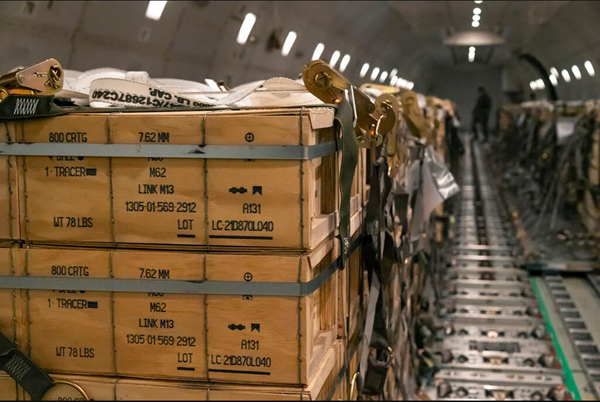Ukraine raises concerns over faulty Western ammo
A significant portion of artillery shells provided to Ukraine by Western allies has been found unsuitable for use. The ammunition did not explode several kilometers away from the launch site as intended but detonated just 20-60 meters from the barrel after firing. This information comes from a letter that the Ukrainian government sent to the Czech Republic, as reported by German business newspaper Handelsblatt.
The artillery munitions in question were reportedly supplied to Kyiv by the United States and also under a Czech initiative. "During combat use of the aforementioned shells, numerous instances of explosion occurred at a distance of 20 to 60 meters from the artillery installation's barrel," the document cited by the paper states. "This resulted in injuries to soldiers and damage to artillery systems."
The letter highlights that the premature detonation of the shells is attributed to outdated detonators, specifically the M515 and M51A5 types, which were developed during World War II. According to Ukrainian military assessments, 0.05% of the 35,000 shells provided by the West were found to be unusable due to this issue. "Out of 10,000 shells fired, five exploded prematurely," Handelsblatt calculated.
Facing a shortage of artillery munitions, the Czech government proposed in February this year that Western allies purchase 800,000 shells from global markets for Ukraine. Many Western countries supported this initiative. Germany emerged as the largest sponsor, providing around 180,000 artillery shells, the publication detailed. Previously, Handelsblatt reported that the German federal government probably paid inflated prices for these shells.
In response to an inquiry about Kyiv's report, the Czech Ministry of Defense confirmed that there were technical problems "in a small number of cases" with the artillery shells. However, these issues were resolved collaboratively with the suppliers, the statement continued. All allied partners involved in supplying artillery shells to Ukraine were informed of the situation, Prague indicated. Following a joint error analysis conducted with the Ukrainian side, no further incidents were reported, according to their response.
The presence of "functional errors" in some shells was also confirmed by the Czech arms manufacturer, CSG, a subsidiary of Excalibur Army. However, they noted that this only affected a very small portion of the ammunition supplied to Ukraine under the Czech initiative.
CSG added that the issues might have arisen due to an unfortunate combination of components in the artillery shells, such as mismatched detonators and shell propellants.
On another note, there is a possibility that the problems stem from long-stored ammunition being delivered to Ukraine. Handelsblatt reiterates an article from the Financial Times stating that the British government, in an effort to cut costs, sends ammunition earmarked for disposal to conflict zones.
The article also mentions that similar problems were identified with the same type of ammunition provided to Kyiv by another ally. According to Handelsblatt, in August, Ukraine informed the U.S. Army Europe Command about issues with artillery munitions.
German military officials told reporters that the German Armed Forces do not use shells with M515 and M51A5 detonators.
According to data from the Czech Ministry of Defense, more than 2 million large- and medium-caliber shells have already been supplied to Ukraine under the Western allies' initiative to provide the war-torn country with artillery munitions. In the letter pointing out the defective shells, sent by Kyiv to Prague, Ukraine emphasizes its appreciation for Czech efforts in providing assistance.
